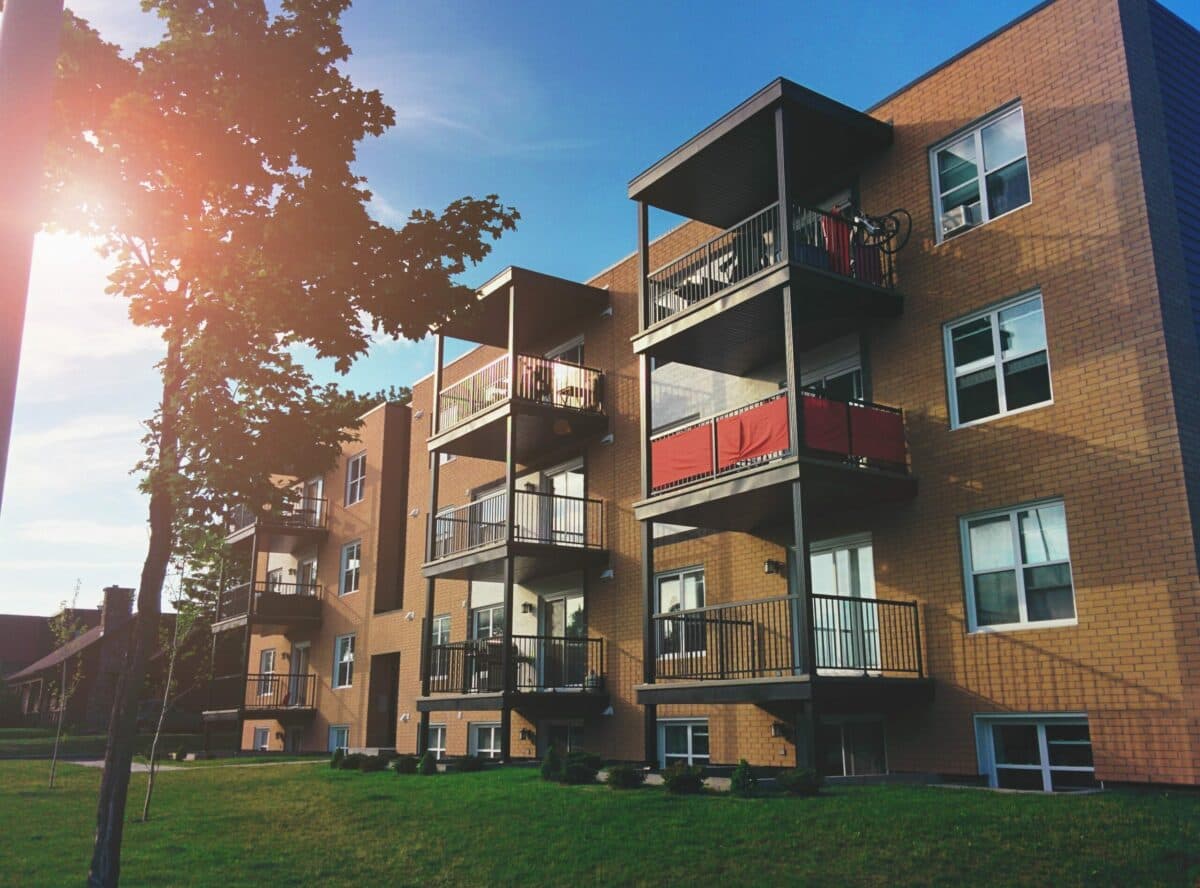72.07% of Canadians Think That the FHSA Will Have Little to No Positive Impact on Their Ability to Buy a First Home
By Stefani Balinsky | Published on 27 Apr 2022

72.07% of Canadians think that the tax-free First Home Savings Account (FHSA) will have no real positive impact on their ability to buy a first house.
The FHSA is a tax free savings account that blends the tax efficiency of a registered retirement savings plan (RRSP) with the flexibility of a Tax-Free Savings Account (TFSA). Canadians 18 to 40 years-old can deposit $8,000 per year, with a lifetime contribution of $40,000, to save for a down payment for a first home.
The finding comes from an online survey done by Hardbacon. The survey reveals that home ownership in Canada is about a lot more than a down payment. The desire is there, but access to money and housing prices are the real obstacles.
Nearly 90% of Canadians want to own property
A whopping 88.4% of Canadians surveyed want to own property in the future. When we look at people who do not own property yet, we see that 88.6% want to step on the property ladder. What about the 11.4% who don’t currently own property and don’t want to either. What is their hesitancy?
Of the people that want to eventually own a first property, 70% responded that they want to use the FHSA to save for a down payment on a first property. 23.08% are between the ages of 25 and 34, and 21.37% are between 35 and 44. Remember, only those 40 years old and under are eligible for the FHSA benefit.
It is great that the majority of respondents want to use the FHSA. What is not great is that 30% do not plan to use the FHSA to save for a down payment even though they want to buy a first home. The reason is surprising: 54% do not understand the advantage of the FHSA. The other 46%? They don’t think that they will have the money to put away.
Why Canadians do not want to own property
A full 11.4% of Canadians answered that they do not want to own property in the future. Why not? Half of them (50%) think that prices right now are too high and that they will never be able to afford a home. The next most-popular reason? Renting is a lifestyle choice (28.57%).
That leaves 21.43% of people feeling, again, that prices are so high right now that it is financially smarter to remain a renter.
Where do you get your down payment, Canada?
Saving for a down payment requires creativity. Canadians do not necessarily have a lot of options.
The Bank of Mom and Dad
Canadian parents are generous but not necessarily when it comes to lending or gifting thousands of dollars, if not tens of thousands of dollars, to their kids for a down payment on a first house. In fact, 82.7% of respondents do not anticipate getting money for a down payment from the Bank of Mom and Dad.
Is it just a new trend? Hardbacon asked Canadians who own homes already and those who want to buy a first home about getting money from parents to afford a down payment. Of those who already own a home, 82.04% did not get help from their parents. The more things change, the more they stay the same.
So what about the roughly 17.3% who can get help from their parents? How much do they think they’ll get? 20% think that they will get between $5,000 and $10,000. The rest is spread out, with a combined 30% of people anticipating an amount between $15,000 and $30,000 and 15% expecting between $50,000 and $100,000. Is anyone expecting more than $100,000? Yes, approximately 10% of respondents.
Is it a loan or a gift?
Does the Bank of Mom and Dad want its money repaid? 52.94% of those who expect parental help with a downpayment think the money is a loan. That means that 47.06% of people will not have to pay anything back.
Was this always the case? There is generational wealth, but does it translate to generational generosity? People who already own a first home who did get money for a down payment from their parents were lucky: 55.17% got the money as a gift, while 41.38% received it as a loan. How much money did they get? The highest percentage of people, 18.52%, received $5,000, while 14.81% received $100,000! The numbers are all over the place with 14.81% receiving $15,000 and another 14.81% got $20,000. If only you had a time machine.
Without parental help, how do you get $8,000 a year for the FHSA?
Here comes some sobering news. Of the people who want to use the FHSA and save for a down payment, only 36.70% think that they can save $8,000 to put away in 2023. Another 15.18% think they can put away $2,000 while 11.39% predict a $1,000 deposit in the FHSA. 8.86% target saving $500 for the year.
Where is the money coming from?
Is that belt too tight, or not tight enough? 32.8% of those who want to put money into a FHSA in 2023 plan to cut expenses. 16.8% will reduce their RRSP contributions and 12.8% will reduce their TFSA deposit and another 9.6% will take the money out of a TFSA. Here is where it gets trickier. A small number of people, 2.4% will cut their contributions to a Registered Education Savings Plan (RESP) and 3.2% will take it out of their RRSP.
It sounds like Canadians are flush with cash, and only need to make small adjustments to get the money for their FHSA. So, how long will it take to save a down payment? 22.93% think that it will take 5 years, 5.6% think it will take 10 years, while 6.42% think it will be at least 15 years. Good for you if you have a 15-year time horizon before reaching 40, the maximum eligible age for the FHSA. If you don’t have that timeline and want to use the FHSA, you need access to more money faster.
Remember the 46% of people who didn’t think that they would be able to save the money for a down payment with the FHSA? 25% of them are between the ages of 35 and 44. They are right at the edge of the end of their eligibility. That is compared to only 8.33% of people ages 25-34 who felt the same way. Time is a significant factor in using the FHSA.
A potential shift from fixed interest rate to variable interest rate mortgages?
A down payment is only one crucial factor for stepping on the property ladder. Unless you are paying for a house in cash, you need a mortgage or another type of loan. 67.88% of those who already own a home reported having a fixed rate mortgage. The remaining 32.11% have a variable interest rate.
However, that doesn’t mean that Canadian homeowners are not reconsidering their mortgage options. When it comes time to renew, 37.61% of people plan to take out a fixed mortgage while 24.77% want a variable mortgage rate. A surprising 22.94% are undecided.
Opinions about the FHSA
Canadians think that the tax-free First Home Savings Account (FHSA) is unfair
The FHSA has a maximum lifetime contribution limit of $40,000. Assuming there is no investment growth, that $40,000 down payment represents the minimum down payment the Canadian Mortgage and Housing Corporation (CMHC) allows for a maximum purchase price of $650,000. Too bad, so sad: 39.3% of Canadians polled think that the FHSA penalizes people wanting to buy in more expensive markets. The reasoning? Prices in those markets are very high and $40,000 might not translate to a minimum required down payment.
Of course, not everyone feels the same. 39.3% of all respondents think that the FHSA and its contribution limit is fine. In fact, 7% think that it is too generous! Is it just a case of current owners throwing their weight around? People who own property already are nearly split on the idea. A slight majority (36.9%) think that the FHSA is unfair to people in hot markets. followed by 34.5% who think the amount is fair. A small 7.7% think the plan is too generous.
Surprisingly, people who do not already own property feel the same way. 42.42% think that people in expensive markets are unfairly penalized, while 34% think that the FHSA is enough of a help, and 6.06% think that it is too generous to first time homebuyers.
The FHSA and the limits on new construction and flipping are not going to help
62.39% of Canadians who do not own already own a home believe that the FHSA, as well as limits on new construction and house flipping, will not help them buy their first property.
Furthermore, 48.64% of respondents think that the FHSA is good to save some money in taxes but otherwise will not have a substantial impact. 23.42% think that the FHSA will have no impact at all. Are there no optimists out there? Yes! 22.52% believe that the FHSA will help them buy a first home faster. The remaining 5.40% think it will help them buy a more expensive house.
The survey of 300 Canadians over 18 years-old was conducted online by Hardbacon between April 9 and April 20, 2022.

